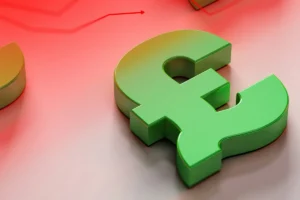“This is a phenomenon that central bankers have not had to deal with in the past. Oil supply disruptions in the 70’s are a poor analogy.
“The last twenty years saw a persistent drop in prices, as a result of globalisation. The unspoken truth amongst policymakers is that supply chain optimisation, not central bank policies, kept prices in check. In other words, their basic mandate, inflation, has long been out of their control. Because it was going down, not up, no one bothered. Central bankers, instead, focused on maintaining financial stability by increasing banking oversight b and flooding financial systems with cash.
“Let us not lose sight, then, of what central banks have evolved into by pretending they can still adhere to their inflation mandate. They transitioned their institution from ‘stewards of inflation’ to ‘risk enablers’ for financial markets. Central bankers should have learned that they have no control over prices, after a decade of ‘Japanisation’ of their economies, where they tried, and repeatedly failed to bring inflation up to 2%. Their attempts to lift the long part of the yield curve (to make money lending profitable again) and inflate away some of their countries’ soaring post-GFC debt simply did not work.
“The pandemic hasn’t demonstrably changed trend demand conditions. Suppose somehow Covid-19 were to magically vanish tomorrow morning and global goods and services orders were to normalise instantly. Do we have any evidence that the economy would not be as ‘Japanised’ as it was in 2019, thus controlling prices as elusive to central banks?
“So why are they even trying? Why is quantitative easing, which has proved to be completely unrelated to general price movements over a decade, now linked to inflation? Why are interest rates, a mechanism designed to control demand, being used to fight what is clearly a supply issue?
Who are central bankers trying to convince?
“We think the answer is surprisingly simple: politics. To misquote Mr Friedman, ‘Inflation is everywhere and anywhere a political problem’. Inflation is a very visible ‘tax’ on consumer incomes. This causes incumbent governments to become unpopular, as Mr Biden recently found out. Elected leaders are ready to shoulder the political cost of taxes they impose, usually on a specific and targeted segment of the population. But inflation may wreak havoc across the board and seriously disrupt political planning.
“Marc Bellmare is an economist at the University of Minnesota. His work shows that once price hikes hit supermarket shelves, the political environment can become toxic. Mr Bellmare found a strong link between food prices and protests, strikes and riots in many parts of the world between 1990 and 2011. His findings do not account for social media and hyper-partisanship, which may amplify the effects.














